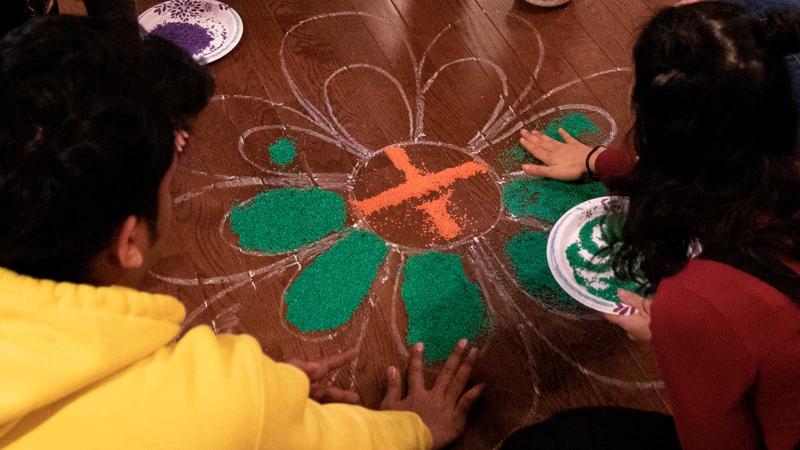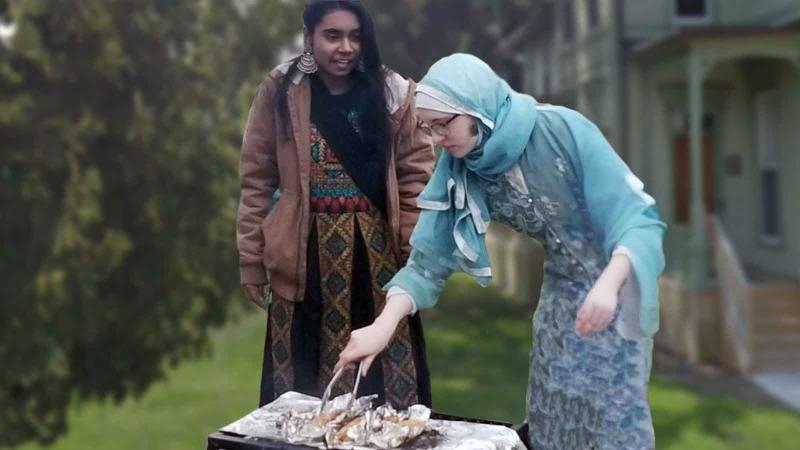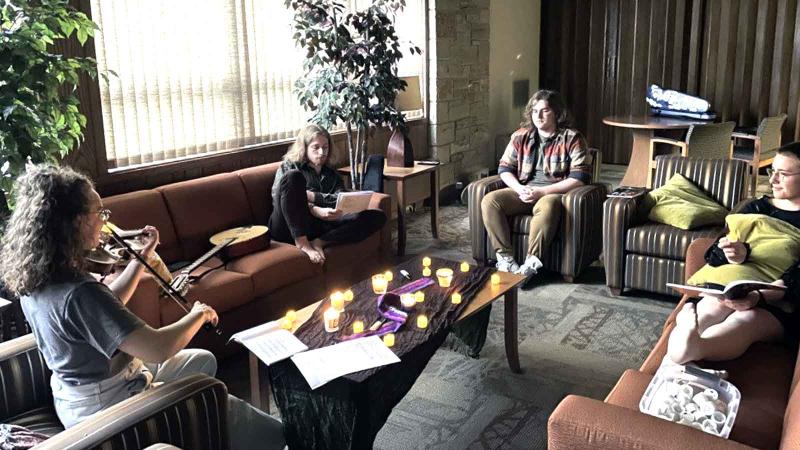Note: all Jewish and Muslim observances begin at sundown on the evening of the first date given.
2025-2026 Academic Year (beginning August)
Rosh Hashanah (Judaism) - September 22-24, 2025
Expect Jewish students to attend synagogue locally on the evening of the first full day and the morning and possibly afternoon of the second day. The holiday is traditionally two days not one; some students may choose to go home for the weekend. This is considered a major holiday on which ordinary work is not pursued, although most Jewish students at Lawrence will go about their ordinary business after formal worship is concluded.
Yom Kippur (Judaism) - October 1-2, 2025
The holiest day of the year and a solemn day; a complete fast from before sundown on the first evening until dark on the second evening. Expect Jewish students to need time for a pre-holiday meal and then go to synagogue locally in the evening. More will attend this service than any other during the year. Expect many also to attend local synagogue for morning, afternoon, and concluding/evening services on the second evening, and then to break the fast after dark, either at the congregation’s communal meal or together with friends. Although Jewish students at Lawrence are generally not strictly observant in a traditional sense, most will deeply resent having academic or extra-curricular obligations on this day, i.e., from late afternoon on the first evening through the night of the second evening.
Sukkot (Judaism) - October 6-13, 2025
Although the first day and last day are major holidays, i.e., days on which ordinary work is not to be pursued, expect Jewish students at Lawrence only to gather for a festival evening service and meal on the weekend.
Diwali (Hinduism) Hindu Lunar Calendar - October 20, 2025
This festival of lights will most likely be celebrated in the evening and should not interfere with any academic commitments, unless there is an evening class scheduled on this day.
Samhain (Pagan) - October 31-November 1, 2025
This festival is the observance of the Celtic New Year beginning at sundown. This is a time of harvest celebrations and rituals. Students should not have interruptions to their academic work.
All Saints’ Day (Christianity – Catholic/Protestant) – November 1, 2025
This is a Christian festive holy day honoring all saints, known and unknown, and is especially significant in Catholic and some Protestant traditions. For Catholics, it is considered a Holy Day of Obligation, meaning Mass attendance is expected. While ordinary work is permitted, students observing the holiday may need time to participate in services.
All Souls’ Day (Christian-Catholic) – November 2, 2025
This day in the Catholic tradition is dedicated to prayer and remembrance of all the faithful departed and those who are in purgatory undergoing cleansing before going to heaven. It is a somber day and students may attend Mass, light candles, or visit cemeteries to honor deceased relatives and loved ones. It generally should not interfere with regular work responsibilities.
Advent begins (Christianity) – December 1-24, 2025
This season in the Christian calendar observes the period of preparation leading up to the celebration of Christmas. Students should not have any conflicts with the academic responsibilities.
Buddha’s Enlightenment Day / Bohdi Day (Buddhism) - December 8, 2025
This is the Buddhist holiday that commemorates the day that the historical Buddha, Siddhartha Gautama (Shakyamuni), experienced enlightenment.
Christmas (Christian-Catholic/Protestant) - December 25, 2025
Christian celebration of the birth of Jesus Christ.
Imbolc (Pagan) - February 1, 2026
Celebrated as a fire festival and associated with fertility, this is a midpoint between the winter solstice and spring equinox in March.
Ramadan (Islam) - February 17 - March 19, 2026
During Ramadan, Muslims abstain from eating, drinking, smoking and sex from dawn to sunset. Ramadan fasting is one of the five pillars of Islam, along with the Muslim declaration of faith, daily prayer, charity and performing the Hajj pilgrimage to Mecca.
Ash Wednesday (Christian-Catholic/Protestant) - February 18, 2026
Ash Wednesday is the beginning of Lent, the forty-day period (excluding Sundays) of prayer, repentance, and self-denial that precedes Easter (Western Churches). Students may choose to fast, but the observance should not impact the normal academic day. On-campus worship service may take place that evening.
Purim (Judaism) - March 2-3, 2026
Purim (held on the 14th day of the Hebrew month of Adar — usually March or April) commemorates the day Esther, Queen of Persia, saved the Jewish people from execution by Haman, the advisor to the Persian king. Esther bravely exposed her previously hidden Jewish heritage to her husband the king and asked him to save her people, which he did.
The month of ‘Alá’ (Baha’i) - March 2-20, 2026
A nineteen-day period each year during which adult Bahá’ís fast from sunrise to sunset each day. This period immediately precedes the Bahá’í new year. It is a time of prayer, meditation, and spiritual rejuvenation.
Holi (Hinduism) March 4, 2026
Sometimes called a 'festival of love,' Holi is a day to forget your resentments and bad feelings toward others, and express your love for life and humanity. It begins in the evening, Holika Dahan (lighting of the bonfires), and in the daytime the celebration is called Dhuleti.
Eid al-Fitr – last day of fasting (Islam) - March 19-20, 2026
This 'feast of breaking the fast") is an important religious holiday celebrated by Muslims worldwide that marks the end of Ramadan and the last day of fasting.
Passover (Judaism) - April 1-9, 2026
Begins at sundown on the first day, and ends at dark on the final day. The major celebration for Lawrence students will be the holiday meal called the Seder, held by more traditional Jews on both the first and second evenings of Passover and by liberal Jews only on the first night. The one aspect of Passover observance that our students generally do adhere to is refraining from eating products made from leavened grain (bread, cereal, noodles, beer, etc.) during the seven or eight days of the holiday’s duration.
Good Friday (Christian-Catholic/Protestant) - April 3, 2026
Commemorates the Passion of Jesus and his submission to death by crucifixion. Some students may request time to attend special worship services during the day.
Easter (Christian-Catholic/Protestant) - April 5, 2026
Celebrates the resurrection of Jesus. It is the oldest and most important festival in the Christian year and initiates the fifty-day period culminating in Pentecost. Many Christian students will go home if possible for this observance.
Beltane (Pagan) - May 1, 2026
Celebration of the midway point of the vernal equinox and the summer solstice. One of the 4 quarter day festivals, Beltane is important in the turning of the wheel of the year.
Eid-al-Adha (Islam) - May 26-27, 2026
Eid-al-Adha is a special day during which Muslims remember Prophet Ibrahim’s sacrifice and celebrate with prayer, family, and festive meals. It’s marked by the ritual sacrifice of an animal, with the meat shared among family, friends, and those in need. Many Muslims take time off from work to perform the ritual, attend prayers, gather with loved ones, and enjoy traditional dishes prepared specially for the occasion.




